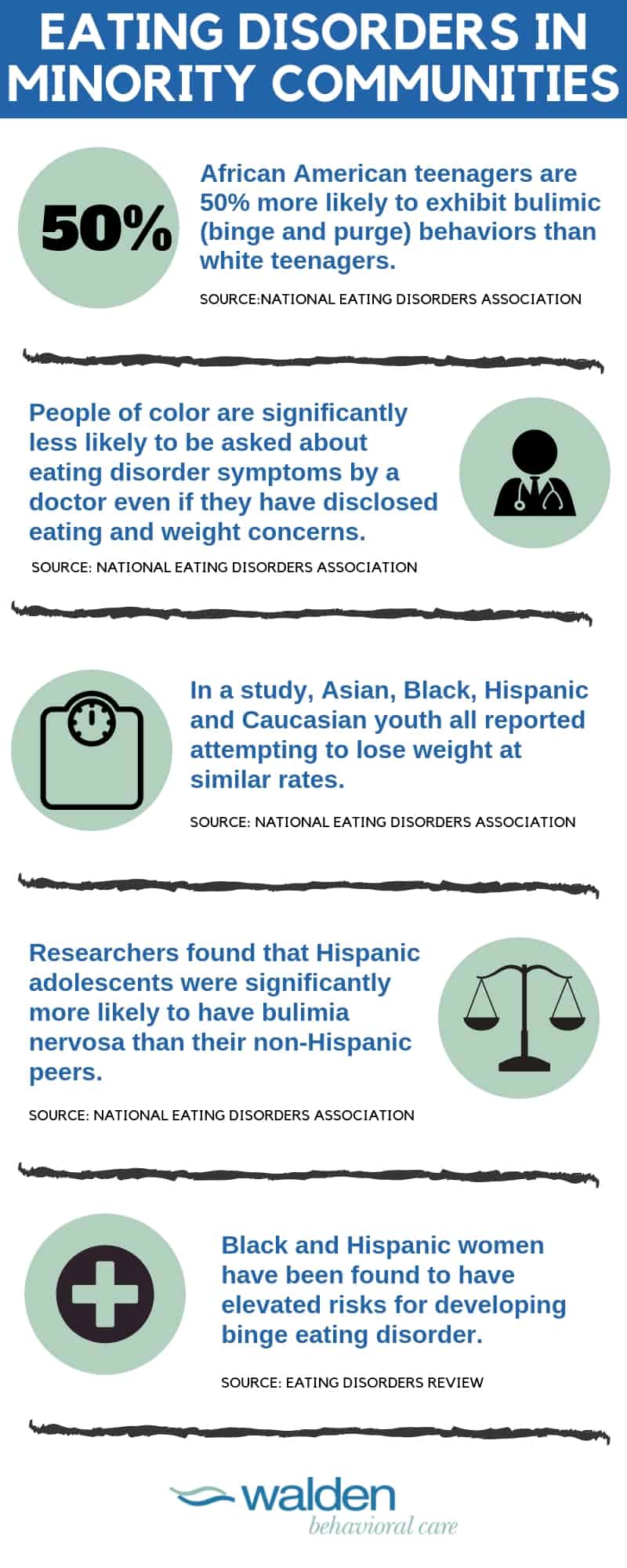July is National Minority Mental Health Month and we are thrilled to bring awareness to this important topic.
Many people from diverse backgrounds have fewer opportunities to access mental health support. This is often because of cultural differences, provider biases or a lack of education regarding available resources. In the eating disorder community, harmful stereotypes prevent many people from seeking specialized treatment and support. We have created the infographic below in order to bring awareness to minorities that live with eating disorders. The statistics below prove that eating disorders do not discriminate based on skin color, ethnicity or external appearance.
1. African American teenagers are 50% more likely to exhibit bulimic (binge and purge) behaviors than white teenagers. (NEDA)
2. People of color are less likely to be asked about eating disorder symptoms by a doctor even if they have disclosed eating and weight concerns. (NEDA)
3. In a study, Asian, Black, Hispanic and Caucasian youth all reported attempting to lose weight at similar rates. (NEDA)
4. Researchers found that Hispanic adolescents were significantly more likely to have bulimia nervosa than their non-Hispanic peers. (NEDA)
5. Black and Hispanic women were found to have elevated risks for developing binge eating disorder. (Eating Disorders Review)
We believe that everyone should have equal access to life-changing mental health support services. If you or someone you love are living with an eating disorder, there is help here at Walden.
Click here to download the infographic.








